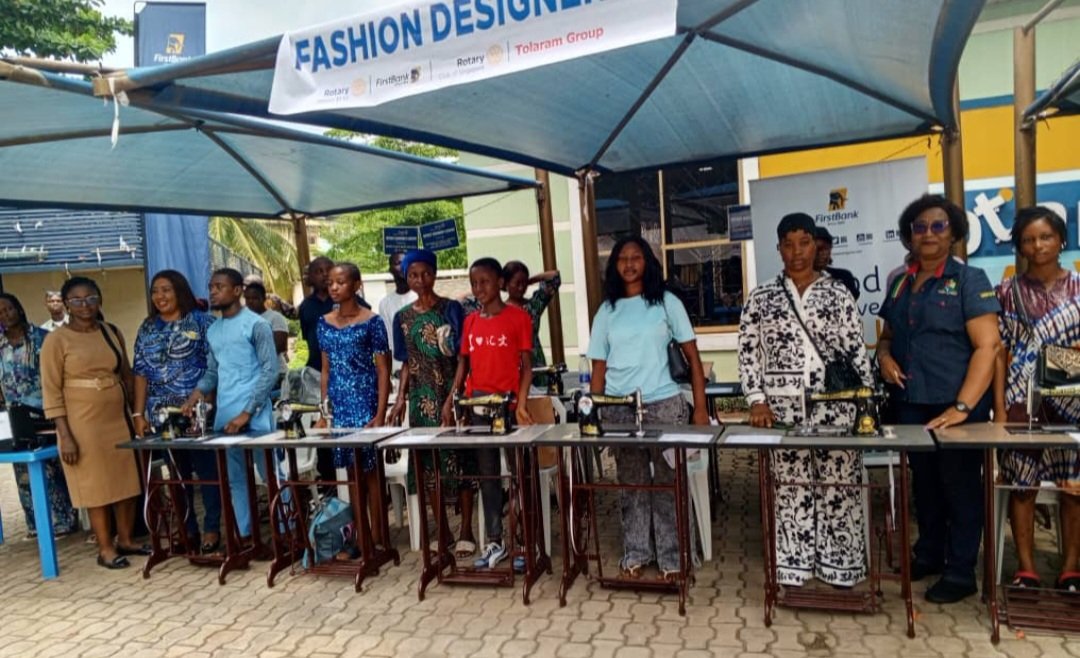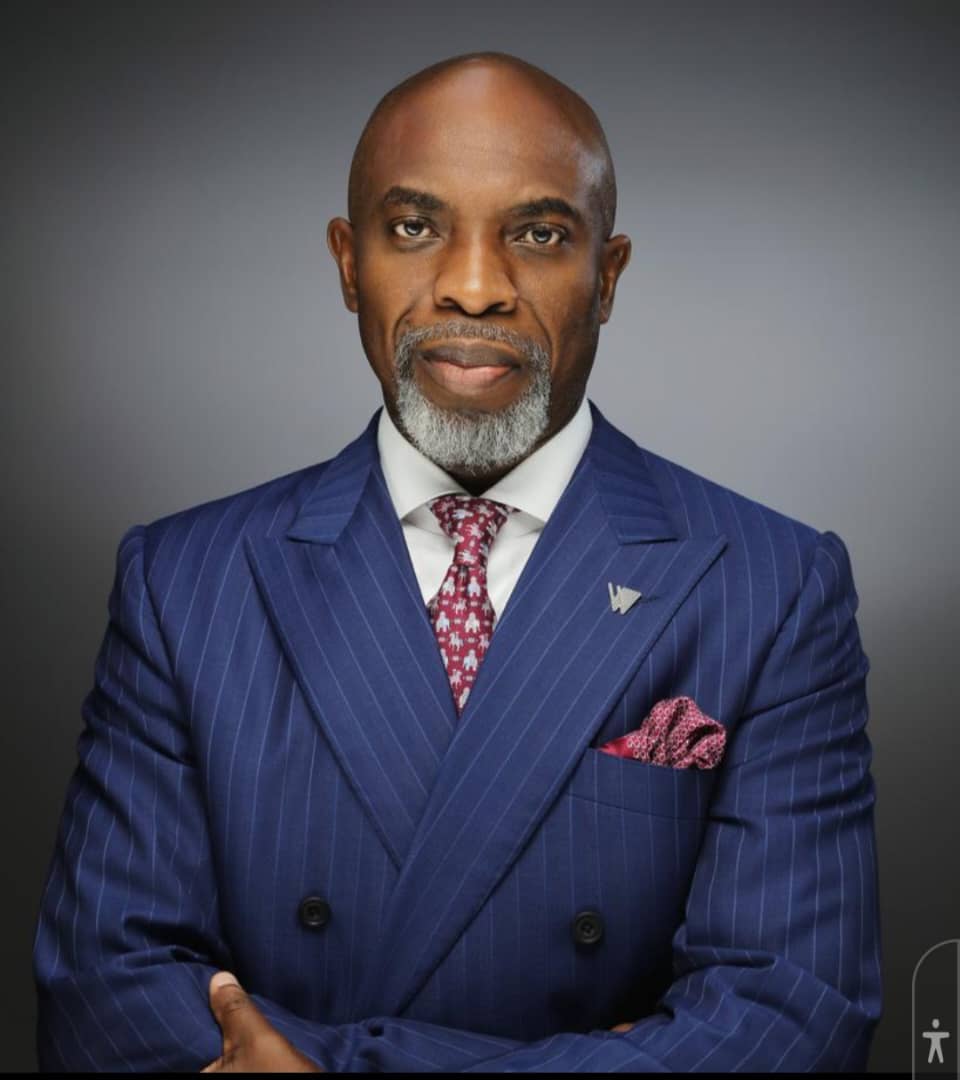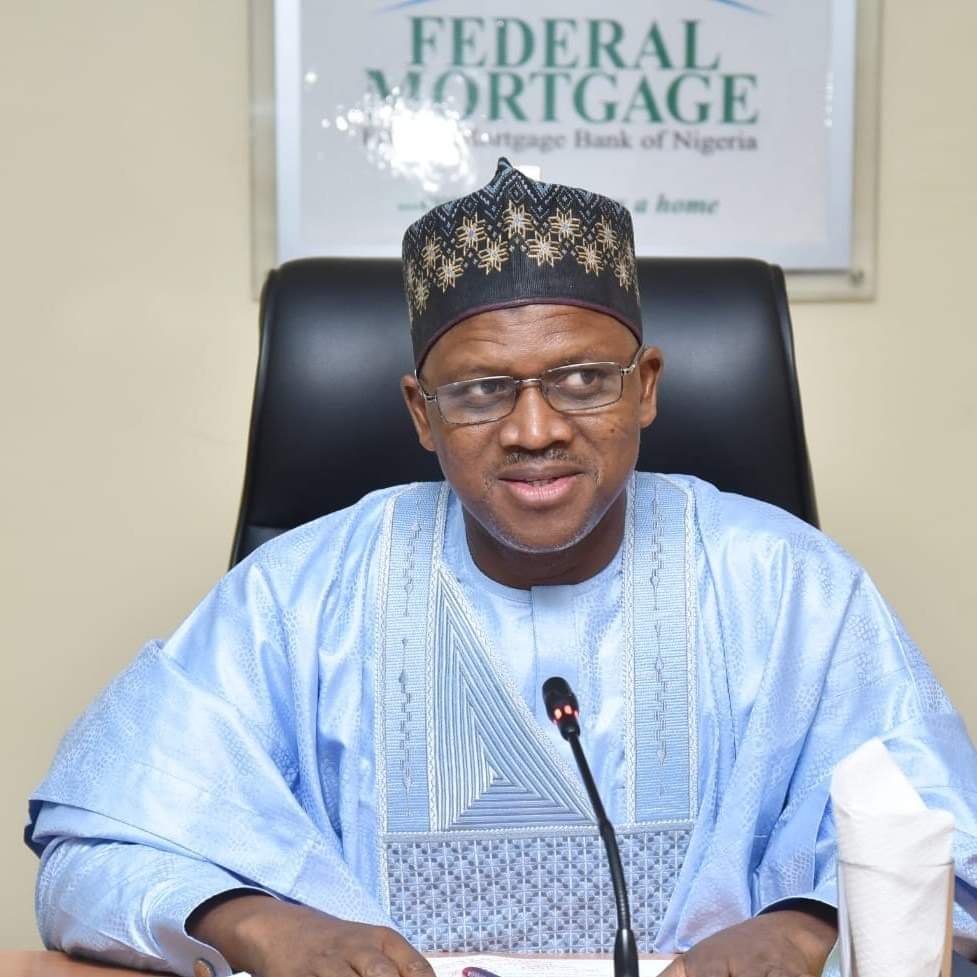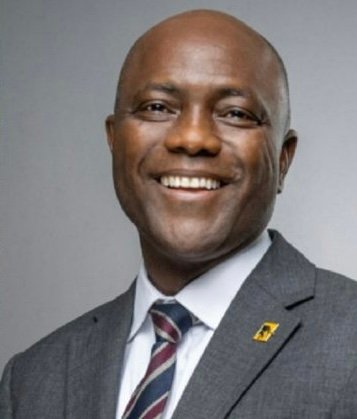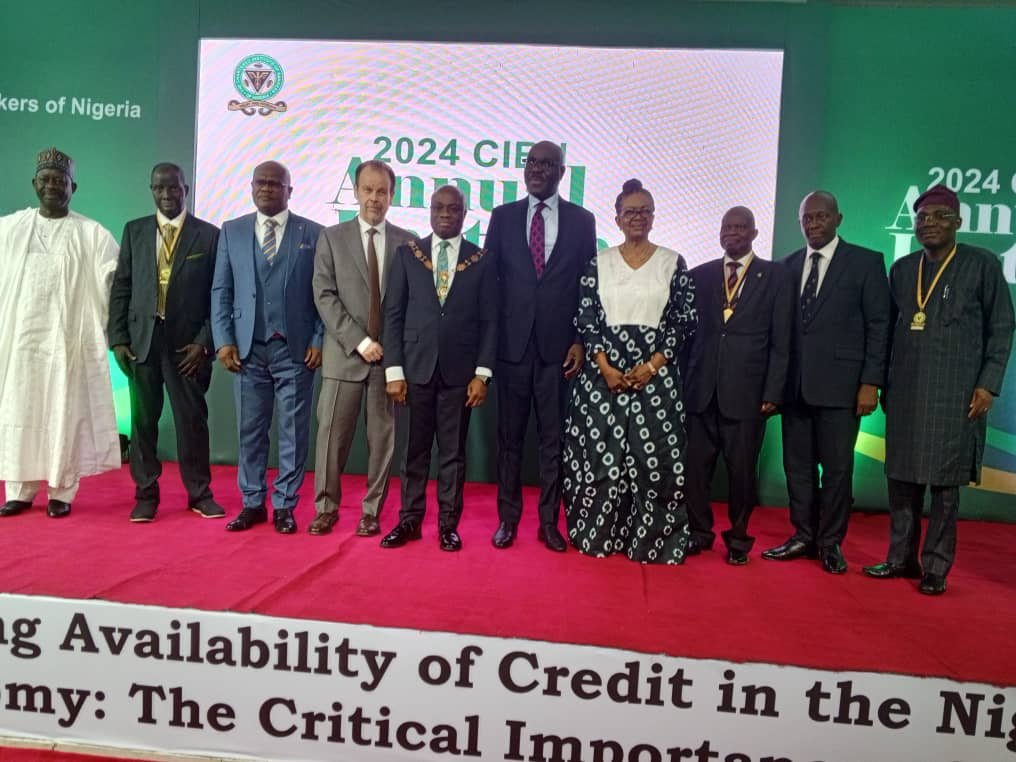First Bank, Rotary empower 102 beneficiaries with N20m start-up kits
By Grace Alegba
The First Bank of Nigeria Ltd, with Rotary Club International, District 9110, has distributed N20 million worth start-up kits to 102 beneficiaries in Lagos to empower them across various trades.
The News Agency of Nigeria (NAN) reports that start-up kits distributed included: grinding machines, plumbing kits, deep freezers, sewing machines, generators, gas burners and cylinders, barbers and hairdressers kits, among others.
NAN further reports that the community intervention project had beneficiaries from the three major ethnic groups in Nigeria drawn from Lagos, Ogun and Oyo states.
Ms Helen Ihonre, Unit Head, Other SME Products E-Business and Retail, FirstBank, during the presentation, offered insights on financial management and economic discipline.
She emphasised the importance of maintaining records and accessing low-interest loans to support business growth and expansion.
She urged beneficiaries to prioritise saving from the inception of their businesses, while discouraging them from keeping funds at home, which might lead to misuse.
“Start saving from the beginning of your business. Don’t wait till you sell and keep the money in your house. Your child will come and say give me, you give him, you will use it to cook soup. At the end of the day, you will not account for what Rotary has done for you.
“So, we want you to open an account and I will give you very few tips on how to succeed in a small business,” she said.
Rotary District 9110 Governor, Ifeyinwa Ejezie, spoke on the significance of economic empowerment in Rotary’s initiatives and called for government collaboration to reach grassroots communities effectively.
She emphasised the role of Rotary in complementing government efforts and stressed the need for recognition and partnership to enhance community development.
“We know that government cannot do it alone and that is why we are assisting them in no small way in doing what they are supposed to be doing in our communities.
“So, the best they can do is recognise Rotary for what it does and then partner with us accordingly,” she said.
She added that the N20 million items distributed was the largest the district had done in one empowerment initiative in recent times.
Bukola Bakare, Rotary International District Governor Nominee Designate, explained the process and challenges of raising funds for the project and how they incorporated Rotary from Singapore to absorb shocks from inflation.
Bakare, who was the Project Cordinator, said, “everything that has been given here today is free for the beneficiaries”.
She said that First Bank was a major sponsor for the project, adding that the 102 beneficiaries were chosen based on a needs analysis from Igbos, Hausa and Yorubas resident in Lagos, Ogun and Oyo states.
“First Bank is our major supporter for this programme, we have a 10-year plan,” she said.
Mr Babatunde Adewale, Permanent Board Member, Lagos State Universal Basic Education, lauded the empowerment programme, while reeling out contributions and projects of Rotary International to schools in the state.
“We really appreciate Rotary and SUBEB will always continue to collaborate with them,” he said.
Mrs Kemi Kalesanwo, Director, Lagos State Agency for Mass Education, said that 22 out of the 102 beneficiaries were from the agency’s vocational training centres.
Kalesanwo said that the state government believed in public, private partnership and was happy with the collaboration with Rotary and First Bank.
She listed projects donated by Rotary to include construction of one of the eight vocational training centres, owned by the agency in Igbogbo area of Lagos.
Kalesanwo, therefore, urged other Nigerians to support government programmes.
Otumba Wemmy Osunde, Chairman, Illisan Development Association, Ogun State, pledged personal commitment to ensuring beneficiaries utilise the items for economic gain.
Adekunmi Adeniyi, an industrial gas burner and cylinder beneficiary alongside other beneficiaries expressed gratitude to Rotary International and First Bank for the initiative.
He acknowledged the impact on their respective trades and crafts.
Edited by Olawunmi Ashafa



